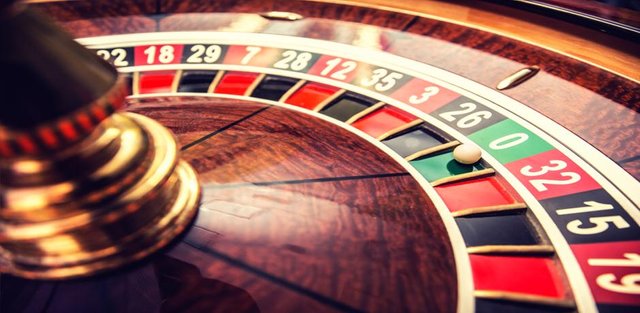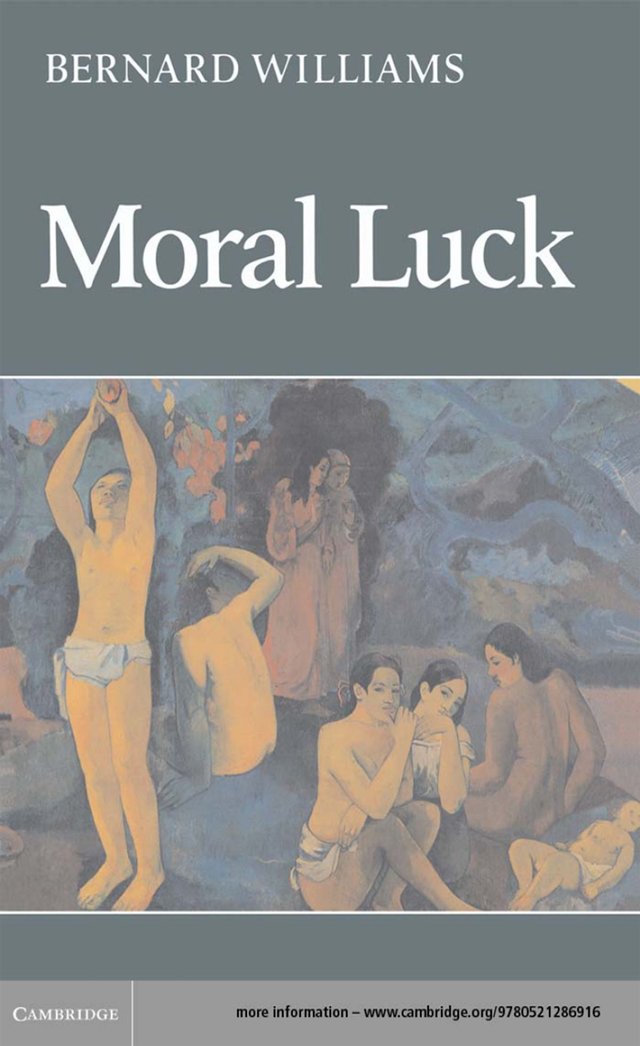Normative Moral Luck?

Moral Luck
Moral luck is a topic in moral philosophy that considers and takes serious the landscape of unpredictable factors that impact on our actions and intentions. It’s a topic that raises challenges to our ability to discern between the praiseworthy and blameworthy nature of actions and how we judge these actions based on these parameters. It also takes into account the fact that individuals are never in control of where or when they are born, meaning that an environment and period with all its elements, can impact on a person in either negative or positive ways, morally speaking. Some are lucky to be born in a time and place where development of all the mental faculties responsible for desirable outlooks and actions are available and in place, as opposed to unlucky individuals who are born in terrible conditions that do not provide these same resources.
Consider this well-known example to better grasp the concept of moral luck. Two men were drinking alcohol and decide to drive; both lose control of their respective vehicles and drive off the road, crashing their cars. However, while both crash into a tree, the one driver hits and kills a person before crashing into the tree. Both cases are identical with the exception of manslaughter in the one case, the question is, how will the men be punished based on these close to identical circumstances? No doubt one will receive a more sever punishment than the other, despite the fact that both were drinking and driving and neither one intended to do harm to someone else. There are other examples, which easily flip the scenario to show that even agents with the worst intentions can avoid punishment based on moral luck. But as a theory, moral luck usually seems more focused on judgments of the consequences of these events, but does not seem to lay itself down as a foundation for normative considerations, I wish to investigate whether or not this can be changed, whether the concept of moral luck can guide our actions as a normative theory.
Normative Ethics
Normative ethics is a branch in moral philosophy that looks to advance theories that provide a structure and direction to our actions for the good. This is first done by coming to an understanding of what constitutes the good and then telling us what to do to achieve it and why. The three most well-known approaches to normative ethics will be mentioned in brief, and those wishing for a more in depth analysis can simply click on the links.
Virtue Ethics - Agent centered; an action is correct if it is, typically, what a virtuous person would do.
Deontological Ethics - Act centered, an action is correct if it upholds a specific moral obligation and duty obtained or created by an autonomous, rational agent.
Consequentialism - Act centered, an action is correct if it results in the most favorable/good/desirable outcomes. The consequences of an action take priority.
With these set out, could a similar prescription be made for moral luck? It seems unhelpful to say that an action is right if the agent is lucky to benefit from its outcomes in some way. Instead, with foundational knowledge of the unpredictable nature of our lives and the degree to which we understand how luck does play a role, can our actions be guided by this and create innovative ways of increasing the probability of good luck and outcomes?
Poker and Life
The inspiration for this particular piece came from watching a video advertisement on poker techniques. I thought the methods taught to effectively increase the probability of success in this game of “luck”, could analogously be used for our everyday life. The game of poker does require a great deal of skill, but few would deny that luck does play quite a role in it too. For one needs to ask with regards to the history of the game, which came first, the luck or the skill? I would wager that luck came first, that some individuals started out by just randomly handing out cards and betting who had the more favorable hands, and as time went on, techniques and skills were developed and patterns and tells were picked up.
The advertisement in question was a master class in poker presented by Daniel Negreanu, a poker world champion that I had seen a few times online. It was quite interesting to hear the list of qualities and skills a person requires to be a good poker player, from confidence and discipline, to awareness and courage. In the course, he teaches strategy, bluffing, card ranges along with theory and math amongst others, and all of these are used to increase the probability of success within a landscape that is unpredictable and uncontrollable. I think these are useful tools that have wider application in the game of life, and that the game provides similar qualities to life in that the cards that are dealt are random, requiring us to play them as best we can. The game is social, requiring us to develop no small degree of understanding of the other players in order to be able to enact our strategies. And it does require some luck to win a few hands that don't always give us what we want.
The Spider in the Urinal
The theory is a meta-ethical one, raising questions on the nature of ethics and morality, and raising large questions on our free will, the consequences of our actions and the responsibilities towards outcomes. Having used poker as an example, I would like to move onto another. One of the most famous names attached to moral luck is the philosopher, Thomas Nagel. In his, The View From Nowhere, he mentions at the start of the section on Birth, Death and the Meaning of Life, that one summer at Princeton, he came across a spider that was stuck in a urinal. He noticed how it was impossible for the spider to escape the urinal due its design, and would often exert great energy to avoid the flushing water. One day, Nagel decided to help the spider out of the urinal thinking he could add greater quality to its life, but instead, the spider didn't move and just died once out of the urinal. Despite his intentions, the outcomes were far worse, and he was unlucky that this act had lead to this outcome.
This story makes us ponder on the morality of intervention, but also emphasized the primary thesis of the book, that we have two different viewpoints that are essentially disconnected. Our subjective viewpoint, which comes with its own unique realities, and then there’s the objective viewpoint which presents realities that we may not have direct or easy access to. The book looks to give great analysis of both viewpoints and suggest methods of reconciling them. A better understanding of the state of affairs can sometimes lead to a greater probability of successful outcomes, indeed, a greater probability of luck favoring our decision.

Thomas Nagel
Possibility and Problems
Having laid out a few of the examples in the previous sections, In what possible way could we see moral luck informing a normative theory of ethics? Perhaps it would be useful to see moral luck, morally, the same way people see anarchism politically, as not so much a strict system per se, but rather a natural tendency that comes from experiencing life. We see this tendency within both Chinese and Stoic philosophical traditions, where importance is placed on understanding and acknowledging the unpredictability and uncontrollability of life, a Stoic like Seneca even prescribed that we practice premeditation to better strengthen us for the possibility of great disaster happening through our day. But the point is that this awareness alone can lead to qualities and skills that better allow us to navigate it and increase probabilities of desirable luck.
It might also boast qualities from the other normative theories. For example, it does require a great deal of education and practice, similar to virtue ethics. It would be interested in good outcomes, like consequentialism, and it would also speak to the value of co-operation in the world and a duty to people and different moral institutions.
But this isn't without its problems, and it should be stated that this is not an attempt to claim this as a normative theory, but as I said, to look at the possibility of fleshing one out based on the principle of moral luck. A first argument against this view would be an argument from redundancy. Which is to ask whether or not we need another normative theory that doesn't seem to offer up anything new. It would be justified to ask if moral luck is something original or just added bells and whistles to moral particularism or virtue ethics. A possible theory might come across as nothing more than simple common sense, obvious to our intuitions.
A second argument might be from its very foundational qualities. That a person born with the bad luck of being in a less than desirable place, may use the virtues spoken of in the context of poker for bad ends. Going further, one could argue that poker is not necessarily the best example as far as desirability in character is concerned, that bluffing as form of dishonesty could be an example of a divisive skill. In light of this, revisions or changes would have to be made, causing any potential theory to simply be shown to be redundant or guilty of ad hoc reasoning.
For now I would say that the foundational aspect that moral luck brings ontologically, its one that I think creates a good platform for education and moral excellence. And the qualities employed in games of chance regarding pattern analysis and probability, are quite interesting and useful. Saying that a theory fails due its simplicity and its accessibility based on common sense intuitions is also not satisfactory, as one could use the same logic for other philosophical tools such as Occam's razor or Leibniz's Law but this does not make them any less valuable.
As for the second argument, I think the normative approaches face the same problems if used in a less than desirable context. Even in the best of contexts, they raise problems that require revision and /or addition, and as such are also guilty of being ad hoc at times.
Whether normative, important to moral judgment of actions or simply a tendency that forms part of our lived experience, moral luck is a concept that has certainly gotten my attention and interest, and I hope to write more on the topic with the help of any curious members of this community willing to add feedback on the matter. And on that note, I wish you all the best of luck in your individual and collective activities :).
